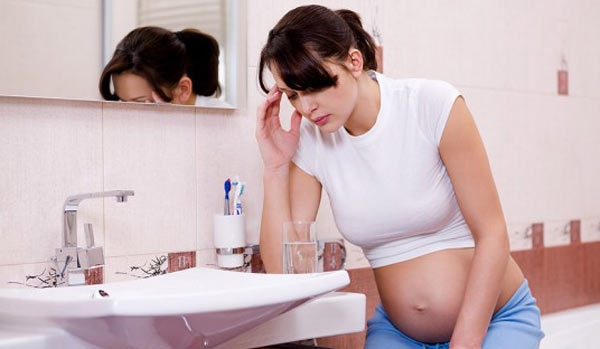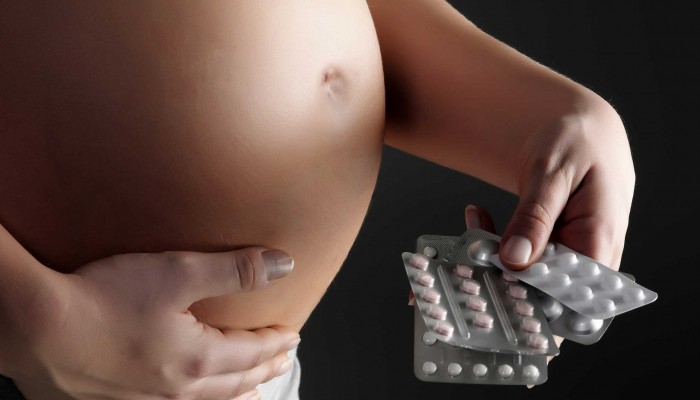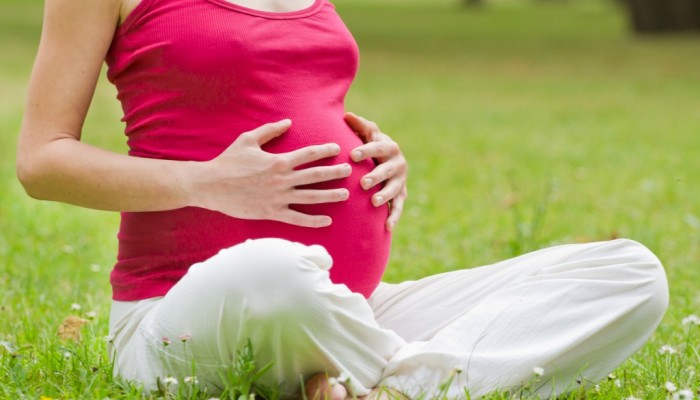Burning sensation during urination in women during pregnancy
Often, women in position may be disturbed by cramps or pain during urination. During pregnancy, such a symptom occurs much more often than in normal life. This is due to various changes occurring in the body during this period.
And, if you don’t have to worry about the physiological origin of such manifestations, then the pathological disorders hiding behind the common symptoms require a timely response. However, any action can be taken only after finding out the cause of pain during urination.
The reasons

The most common statement is that burning or cramps during urination clearly indicate the pathology of the excretory system. As a rule, this is exactly the case.
In the early stages of pregnancy, a woman may feel frequent urges, which are the result of physiological changes in the body. But to find out the reason, you should always consult a doctor. Only he will be able to choose the most probable factor among such states:
- Cystitis.
- Urolithiasis disease.
- Urethritis.
- Genitourinary infections (candidiasis, chlamydia, gonorrhea).
Among the reasons there are quite serious diseases that can lead to dangerous consequences. And during pregnancy, this is of particular importance, since in some cases there will be a risk to the health of the unborn child.
If it hurts to write to a pregnant woman, one should not think only about the possibility of physiological causes, but first of all, pathology must be excluded.
Symptoms
If urination disorders occur during pregnancy (dysuric phenomena), all accompanying manifestations must be taken into account. Consideration of a single symptom without a complex concept of pathological changes will not bring results.
It is necessary to conduct a competent differential diagnosis of possible diseases, evaluating the similar and distinctive features of each disease. Most often, pain during urination during pregnancy is accompanied by other symptoms, which include:
- Cutting and burning sensation.
- Frequent urination.
- Change in the amount and color of urine.
It is possible to make a conclusion about a certain disease after a thorough clinical examination using additional methods.
Cystitis
With inflammation of the bladder, they often complain that it becomes painful to write. The disease is common among women of any age, but occurs much more often during pregnancy.
This is due to the relaxing effect of hormones on the urinary tract, resulting in an increased risk of infection in the bladder.
Characteristic of cystitis will be pain, burning or cramps that occur in women at the end or after urination. This feature is associated with contraction of the muscular sphincter of the neck of the inflamed bladder. Therefore, there are also frequent urges to the toilet.
Depending on the type of inflammation of the mucous membrane, urine may have a different color and transparency:
- With flakes of mucus - with catarrhal cystitis.
- Muddy with pus - with purulent inflammation.
- Bloody - with a hemorrhagic process.
Often during pregnancy, an exacerbation of chronic cystitis is noted, especially in the later stages, when the uterus presses on the bladder, which leads to a violation of its emptying and a change in local blood flow.
Cystitis is accompanied by pronounced symptoms, which, upon detailed questioning, are easily distinguished from other diseases.
Urolithiasis disease

Pain or burning during urination can also bother women with urolithiasis. This is especially often observed when stones exit the kidney and pass through the urinary tract.
During pregnancy, this develops somewhat more often, since the enlarged uterus creates an additional obstacle to normal discharge.
The disease is often accompanied by renal colic, which refers to acute conditions in urology.
Depending on the level of stone retention, pain occurs both during the entire urination and after it. Their distribution to the lower abdomen and lumbar region is characteristic. Often you can notice the appearance of streaks of blood in the urine, and sometimes the attack ends with the direct passage of the stone.
Urethritis
The inflammatory process in the urethra in women is often non-specific. In this case, pain and burning sensation can disturb constantly or occur periodically. If cystitis is characterized by the appearance of pain after urination, then urethritis is accompanied by unpleasant sensations throughout the process.
Acute inflammation is characterized by severe symptoms, while the chronic process may be accompanied by a decrease in manifestations. With nonspecific urethritis, the color of urine will change, but not as pronounced as with cystitis.
The pathological process in urethritis, in the absence of the necessary treatment, can also spread to the bladder.
Genitourinary infections

Pain and cramps during urination can be one of the symptoms of specific infections of the genitourinary system. The most common causative agents of such diseases are bacteria (gonococcus), fungi (candida), protozoa (trichomonas), intracellular organisms (chlamydia, ureaplasma). The main environment for them is the mucous membrane of the vagina, but the disease can also spread to the urinary organs.
Often women are concerned about itching and burning in the vagina, which intensify after intercourse. Characterized by selections with the following features:
- White, curdled - with candidiasis.
- Foamy, yellowish, abundant - with trichomoniasis.
- Cloudy, white-yellow color - with gonorrhea.
Quite often, untreated infections lead to dangerous consequences: the spread of inflammation to the uterus, abdominal cavity, infection of the fetus. Therefore, at the first symptoms, you need to come to see a doctor.
Which pathogen caused the disease can be accurately determined by the results of bacteriological analysis of secretions. Further treatment will depend on this.
Treatment
It is possible to treat the disease only if all the factors of its development are identified. Therefore, therapy should be primarily etiotropic, i.e., aimed at eliminating the cause, and after that - pathogenetic and symptomatic.
It is necessary to try to have a complex effect on the pathological process, since the effectiveness of treatment in this case will be maximum.
Medical therapy

The use of many medications during pregnancy is contraindicated, so self-medication is strictly prohibited.
The necessary drugs can only be prescribed by a doctor, taking into account the possible risk to the health of the child. Most often, in diseases of the urinary tract, the following drugs are used:
- Antibiotics (amoxicillin, ampicillin, azithromycin).
- Antispasmodics (no-shpa).
- Local antiseptics (chlorhexidine, furacillin).
Topical preparations in the form of vaginal suppositories, instillations, and baths are of great importance. This will save women from systemic side effects, since the medicine acts directly on the pathological focus.
Which remedy is better to use for a pregnant woman, only the doctor will tell. The dosage and course of administration will depend on the severity of the disease and the response to treatment.
Phytotherapy
Treatment of pregnant women is not complete without the use of herbal remedies. They can be used not only in the form of various fees and teas, but in the form of tablets and drops.
Many of these drugs are included in the standards for the treatment of diseases of the urinary system (for example, Canephron, Urolesan). Complex preparations have a wide range of positive effects:
- Anti-inflammatory.
- Antimicrobial.
- Diuretic.
- Antispasmodic.
Herbal medicines have practically no contraindications, so their use during pregnancy is completely safe.
Prevention

Preventing pain when urinating during pregnancy is easy. It is necessary to follow certain recommendations that will significantly reduce the risk of inflammation in the genitourinary system. Here is some of them:
- Drink enough liquid.
- Eat properly.
- Wear comfortable cotton underwear.
- Wipe the perineum away from the pubis.
- Change sanitary napkins in a timely manner.
- Take a shower daily.
- Maintain a normal acidity level in the vagina.
- Empty your bladder before and after intercourse.
If it is painful for a woman to urinate during pregnancy, everything must be done to find out the cause of this condition. This will depend on the treatment and its result. Only a timely visit to a doctor can save you from adverse consequences.




